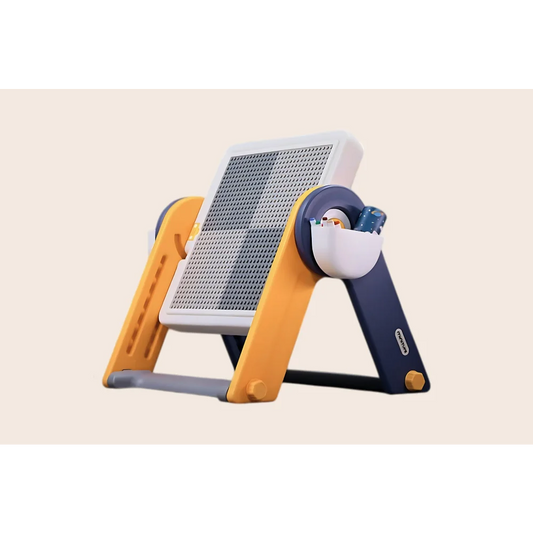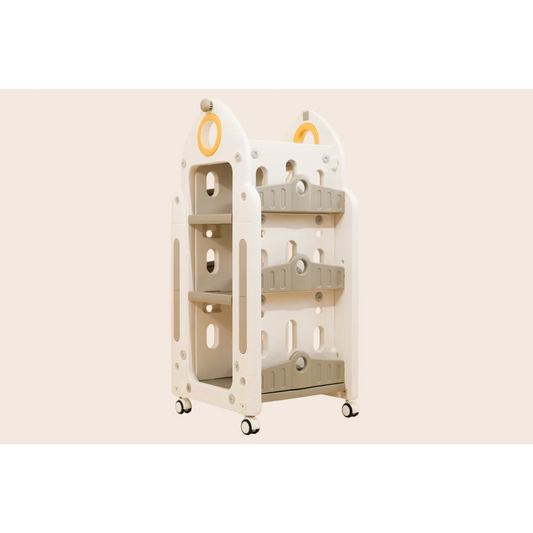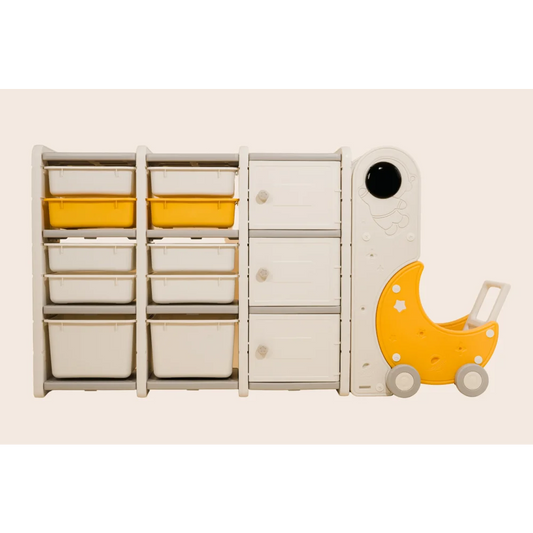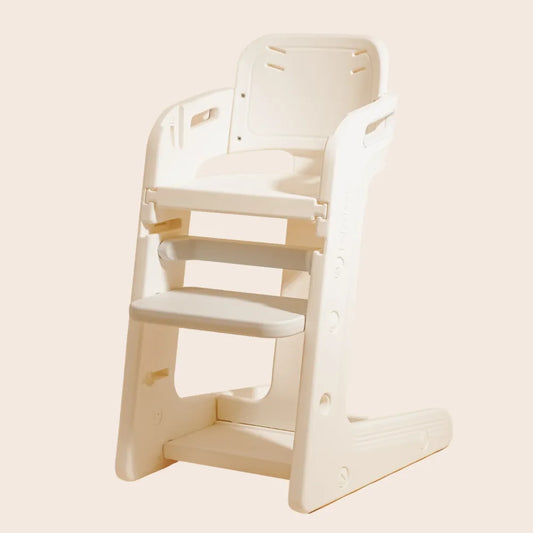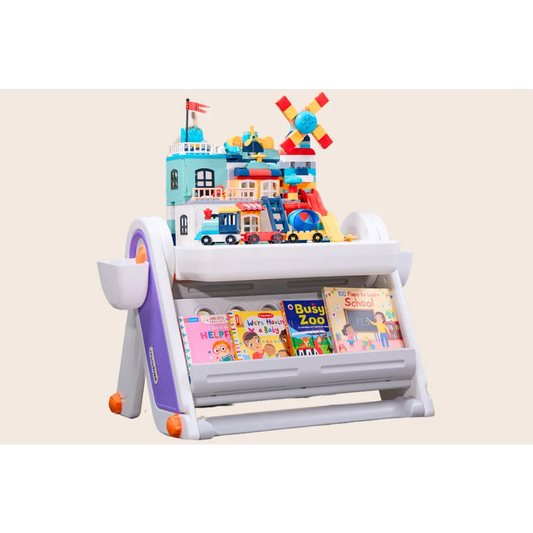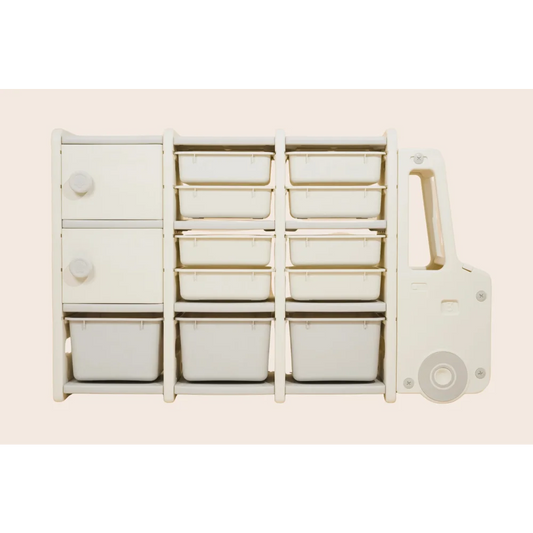

How to Ensure Your Toddler is Hitting Developmental Milestones | Tips & Tools
How to Ensure Your Toddler is Hitting Their Developmental Milestones

Ensuring your toddler hits their developmental milestones is a top priority for most parents. Each child grows at their own pace, but monitoring their progress against established milestones can help you support their growth and address any potential delays early on. In this blog, we’ll explore research-backed strategies to ensure your toddler is on track, and introduce you to the Miniverse app by Miniture—a unique tool designed to support your child’s holistic development through play.
Understanding Toddler Developmental Milestones
Developmental milestones are behaviors or skills that most children achieve by a certain age. These milestones span across several key areas of growth:
- Cognitive Development: Includes thinking, problem-solving, and learning skills.
- Physical Development: Focuses on motor skills such as crawling, walking, and fine motor control.
- Language Development: Involves communication skills, both verbal and non-verbal.
- Socio-Emotional Development: Encompasses emotional regulation, social interactions, and independence.
Every child progresses differently, but being aware of the general timelines for these milestones can help parents support their child’s development in targeted ways.
Research-Backed Tips to Help Your Toddler Hit Milestones
1. Encourage Hands-On Play for Cognitive Growth
Play is crucial for cognitive development in toddlers. Research shows that engaging in hands-on activities such as building blocks, puzzles, and sensory play enhances problem-solving skills, spatial awareness, and creativity. Providing your child with a variety of toys that stimulate different senses can greatly aid their cognitive growth.
How Miniverse App Can Help: The Miniverse app by Miniture integrates with products like sensory kits, building blocks, and art tools to suggest specific cognitive activities tailored to your toddler’s age and developmental needs.
2. Promote Physical Activity for Motor Skills
Physical activity is essential for developing gross and fine motor skills. Activities like climbing, running, and jumping help with balance and coordination, while arts and crafts improve hand-eye coordination and dexterity. The American Academy of Pediatrics recommends daily physical play to strengthen motor development.
Pro Tip: Incorporate fun story-based yoga or simple obstacle courses at home to keep physical activities engaging and beneficial.
How Miniverse App Can Help: The app offers story-based yoga sessions that guide toddlers through playful poses, making exercise both fun and educational.
3. Boost Language Development with Storytelling and Conversations
Language skills in toddlers are nurtured through exposure to words, reading, and interactive storytelling. Simple activities like reading books, singing nursery rhymes, and engaging in conversations about daily routines significantly contribute to language acquisition.
Tip: Make storytelling a daily habit, and encourage your child to participate by pointing at pictures, repeating words, or even creating their own versions of the stories.
How Miniverse App Can Help: The Miniverse app includes interactive bedtime stories and language activities that are designed to expand your toddler’s vocabulary and comprehension skills.
4. Foster Socio-Emotional Skills Through Guided Play and Role-Playing
Socio-emotional skills are developed through interactions with caregivers, peers, and even during independent play. Role-playing, pretend play, and games that involve taking turns can teach toddlers about empathy, sharing, and managing emotions. Behavioral stories also play a significant role in helping toddlers understand complex feelings and social scenarios.
Tip: Use story-based exercises to introduce concepts like patience, kindness, and empathy in a relatable way.
How Miniverse App Can Help: The app offers story-based breathing exercises, meditation, and behavioral tales to help toddlers navigate emotions and build healthy social skills.
Setting Realistic Expectations and Tracking Progress
It’s important to remember that each child is unique, and not hitting a milestone at the exact time doesn’t necessarily indicate a problem. However, tracking progress regularly can help identify areas where your child might need additional support. Set realistic goals and celebrate small achievements along the way.
Weekly Targets with Miniverse App: The Miniverse app sets weekly developmental targets, providing a clear roadmap for parents to support their child’s growth. Activities are aligned with the child’s age and current stage of development, ensuring a personalized approach.
Creating a Supportive Learning Environment at Home
A supportive environment plays a critical role in your toddler’s development. Here are some tips to make your home more conducive to learning:
- Designate Play Areas: Create spaces dedicated to different activities like reading, building, and sensory play.
- Use Everyday Items for Learning: Incorporate household items into playtime—measuring cups for scooping, empty boxes for building, or old magazines for cutting practice.
- Stay Involved: Your involvement and encouragement make a significant impact. Join in the activities, praise efforts, and model positive behaviors.
Conclusion
Ensuring your toddler hits their developmental milestones requires a mix of intentional play, interactive activities, and a nurturing environment. While every child develops at their own pace, staying informed and proactive can make a world of difference. The Miniverse app by Miniture is designed to be your go-to resource for developmental activities, helping your child learn through play while hitting those important milestones.
Try the Miniverse App Today: Download the Miniverse app to explore a world of story-based activities, weekly targets, and personalized learning suggestions tailored for your toddler’s unique developmental journey. Give your child the best start with playful, purposeful learning!
FAQs
1. What are key cognitive and language milestones at 18, 24, 36 and 48 months?
Between 18-24 months, they recognize everyday objects and point to get attention. By 36 months, toddlers can solve simple puzzles and speak in short sentences. By 48 months, they should understand time concepts, count, and use more complex sentences. The Miniverse app’s cognitive and language-based activities guide development in these areas through interactive play.
2. How can I support my toddler’s physical and socio-emotional milestones
Encourage physical milestones by engaging in activities like running, jumping, climbing, dancing and obstacle courses. Socio-emotional skills are strengthened through role-play, sharing games, and empathy-building activities. In addition to this, the Miniverse app offers story-based yoga, meditation, and behavioral stories that help toddlers build both physical and emotional skills while having fun.
3. What if my child isn’t meeting a specific milestone?
If your child isn’t meeting milestones, consider discussing it with your pediatrician for guidance and possible early interventions.
4. What activities can I do to help my toddler gain holistic development?
Plan activities with building block, whiter board to help understand patterns, letters, numbers(cognitive), plan indoor and outdoor play and yoga activities to improve fine and gross motor skills(physical), plan storytelling and listening activities(language), and plan role-playing and behavioural story activities(socio-emotional). The Miniverse app provides curated activities that target all areas of development, helping you guide your child through these critical stages.
5. Are the Miniverse app activities suitable for all toddlers?
Yes, the Miniverse app tailors activities based on age and developmental stage, ensuring that each activity is appropriate and engaging for your toddler.
6. Can the Miniverse app be used without Miniture’s products?
Absolutely! While the app suggests activities using Miniture’s products, it also offers a wide range of exercises that can be done with common household items or no materials at all.
